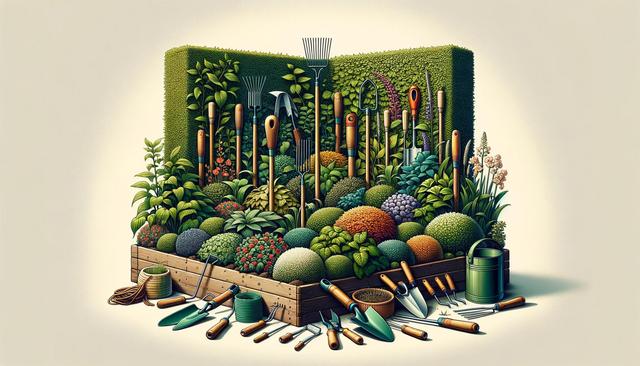Understanding the Root of the Problem: What Kills Weeds Permanently
To create a thriving garden, it’s crucial to understand what kills weeds permanently. Weeds are more than just an eyesore—they compete with your plants for water, nutrients, and sunlight. Permanent weed control requires targeting the root system, not just the visible foliage. This can be achieved through methods like mulching, solarization, or selecting a targeted herbicide that eliminates weeds without harming surrounding plants. For long-term success, consistency is key. Whether you’re using chemical solutions or manual techniques, repeated treatment and follow-up are necessary to truly stop weed regrowth.
Mulching is one of the most eco-friendly and effective ways to prevent weed growth. By applying a thick layer of organic material such as bark, straw, or compost, you not only suppress weeds but also enrich the soil. Solarization involves covering a garden bed with clear plastic during the hottest months, allowing the sun’s heat to bake weed seeds in the soil. These methods, when combined with spot treatments using a refillable weed control product, can be part of a comprehensive strategy to eliminate weeds over time.
Protecting Your Lawn: Best Weed Killer that Won’t Kill Grass
One common challenge for gardeners is finding the best weed killer that won’t kill grass. Many general-purpose herbicides can damage turf if not used carefully. Thankfully, there are selective herbicides designed to target broadleaf weeds while sparing your lawn. These products are ideal for lawns that suffer from dandelions, clover, and other common invaders. When using any weed control spray, it’s important to apply it correctly—usually during the early morning or late afternoon when the wind is minimal and temperatures are moderate.
To minimize risk to your lawn, consider these tips:
- Use a sprayer with a controlled nozzle for precision targeting.
- Apply during dry conditions to prevent runoff.
- Avoid mowing right before or after application to let the herbicide fully absorb.
For those looking to reuse their existing equipment, a refillable bottle is a convenient and eco-conscious choice. It allows for continued use of a sprayer that functions well without the need for purchasing a whole new unit.
Natural Solutions: 9 Most Effective Ways to Kill Weeds Naturally
Gardening enthusiasts often seek natural alternatives to chemical herbicides. Fortunately, there are many effective ways to kill weeds naturally that are safe for pets, children, and the environment. These methods can be especially helpful in vegetable gardens or near edible plants. The 9 most effective ways to kill weeds naturally include:
- Boiling water
- Vinegar and salt spray
- Manual weeding with tools
- Mulching with organic materials
- Cover cropping
- Flame weeding
- Corn gluten meal application
- Soil solarization
- Homemade herbicide blends
Each of these methods has its strengths, and the best approach often involves combining several techniques. For example, using vinegar on young weeds followed by mulching can prevent new growth. Natural weed control methods require more labor and vigilance, but they offer a sustainable path to a healthy, vibrant garden.
Manual Methods: Best Way to Remove Weeds by Hand
While sprays and treatments can be efficient, sometimes the best way to remove weeds is by hand—especially for perennial weeds with deep roots. Hand-pulling ensures that the entire root is removed, minimizing the chance of regrowth. The key is timing: the soil should be moist, which makes it easier to extract the entire root system. If the weed snaps off at the surface, it’s likely to return.
Consider using hand tools such as:
- Weeding forks
- Dandelion diggers
- Hori-hori knives
- Garden hoes
These tools make it easier to dig deep and remove stubborn weeds effectively. Regular weeding sessions—especially in early spring—can prevent small problems from becoming widespread infestations. For gardeners who prefer a hands-on approach, this method remains one of the most satisfying and direct ways to maintain control over unwanted plants.
Long-Term Planning: How to Permanently Stop Weeds from Growing
Achieving long-term weed control means thinking beyond the current season. Understanding how to permanently stop weeds from growing involves creating an environment where weeds struggle to thrive. This includes improving soil health, maintaining healthy plant cover, and addressing bare spots quickly. Healthy, dense plantings leave little room for weeds to take hold.
Long-term strategies include:
- Applying pre-emergent herbicides in early spring to block seed germination
- Regularly aerating and fertilizing your lawn to support thick turf
- Using landscape fabric beneath mulch in flower beds
- Planting ground covers that outcompete weeds
By integrating these practices into your gardening routine, you can drastically reduce the presence of weeds year after year. And when using a refillable weed control spray as part of your toolkit, you maintain flexibility and reduce unnecessary waste—all while keeping your garden in top shape.
Conclusion: A Thriving Garden Starts with Smart Weed Control
Mastering weed control is essential for any gardener aiming to cultivate a healthy, beautiful outdoor space. Whether you prefer natural methods, manual removal, or targeted treatments, the key is consistency and planning. Understanding what kills weeds permanently, using the best weed killer that won’t kill grass, and combining multiple strategies—such as the 9 most effective ways to kill weeds naturally—can lead to lasting results. When you’re ready to refill your spray bottle instead of replacing it, consider a refill-only product that supports your ongoing efforts. With the right tools and techniques, a thriving garden is well within reach.




Leave a Reply